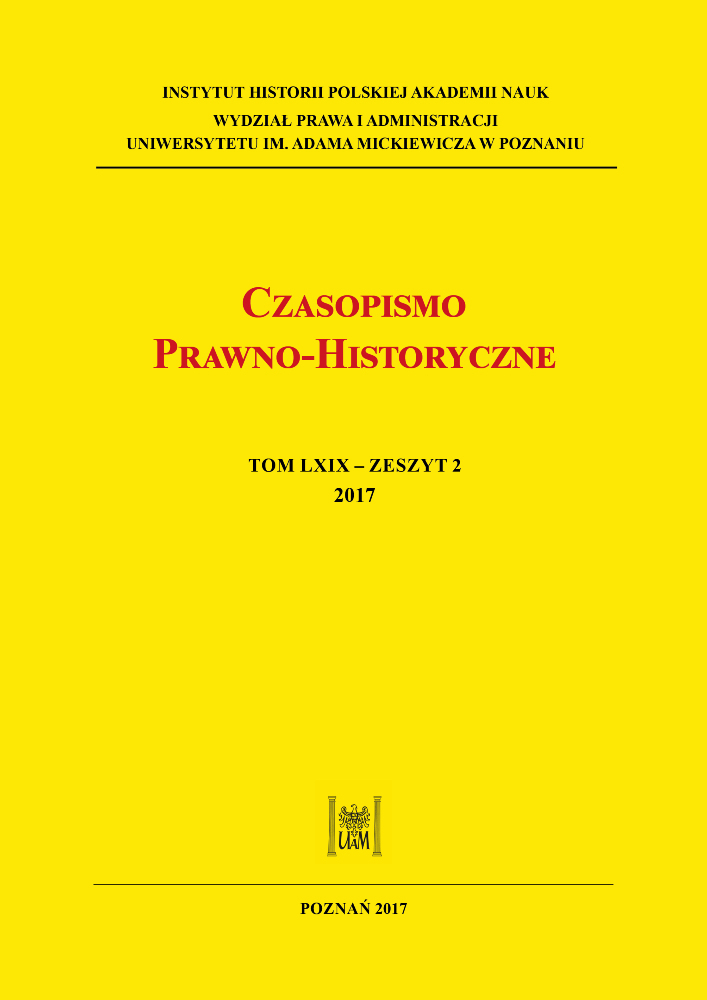Abstract
The article presents the process of creation of new towns in the Duchy of Prussia (1525-1701), which later became Masuria. More specifically, the paper describes how a hamlet received a location privilege. The establishment of towns described here (Olecko, Gołdap, Węgorzewo, Giżycko, Pisz and Ełk) was initiated by Albert, the Duke of Prussia (1525-1568). He was motivated by the idea partially formulated in the location privilege: “For the general growth, elevation and betterment of our duchy”. The duke personally granted the location privilege only to Olecko, which was the sole town established on previously unsettled land. In the remaining cases, he only gave a verbal promise. This did not guarantee a rapid grant of the location privilege as the promise was fulfilled by the duke’s successors in the remaining cases. It happened first in case of Gołdap and Węgorzewo, just several years after the promise had been made. It took a little longer in case of Giżycko (after several decades), while Pisz and Ełk had to wait the longest (almost or more than 100 years). Each town had its own different origins. Gołdap was created quickly (1565-1570) on an area which used to be a duke’s grange. Węgorzewo, Giżycko, Pisz and Ełk waited for several hundred years for a legally binding location privilege. It is important to note that each of the aforementioned towns was established near a former castle of the Teutonic Order. Moreover, the hamlets which developed near the former castles had a different status but they all performed a market or craft function. With time, this function served as a basis for applying for the town privilege. The market function was originally carried out by the peasant hamlets in Węgrorzewo and Giżycko, even though the towns were created on the tenant farmer villages. Furthermore, the old peasant hamlets still functioned but as the contemporary out-of-town jurydykas (German Schloβfreiheit). Pisz was established on the basis of an old peasant hamlet and it never was a tenant farmer village. In case of Ełk it was the exact opposite, there never was a separate peasant hamlet. The tenant farmer village located there evolved into a town. Only two towns were founded due to the inhabitants’ initiative, namely Olecko and Gołdap. The remaining ones were established collectively by the whole community. Most frequently, it took place with the participation of the inhabitants of the former hamlets (Giżycko, Pisz, and Ełk). The former inhabitants did not participate in the process of town building only in the case of Węgorzewo and Gołdap. Generally speaking, each location privilege described here gave the towns the so-called town privilege (German Stadtrecht). It described in detail the area of land and the type of the town privilege which was granted (Culm law in each case). Moreover, it allowed the creation of town authorities (mayor, council and bench) and granted them the option to issue documents and statutes (German Willkür) as well as allowed them to possess a seal. Furthermore, it allowed the towns to organize markets and fairs on certain fixed dates as well as regulated the rights and obligations of the townsmen. Even though the location privilege formally meant the end of the town creation process as far the law was concerned, it did not mean that it was the end of its formation. Further steps had to be made to constitute the authorities and the bench, to write statutes (German Willkür), guild regulations, etc.
License
Copyright (c) 2017 Grzegorz Białuński

This work is licensed under a Creative Commons Attribution-NonCommercial-NoDerivatives 4.0 International License.




